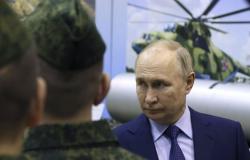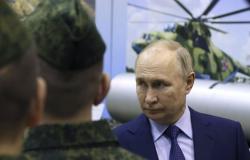Friends considered Petr Cidzik the most mystical politician of our time. He was described as a particularly pure person: from his look, from his thoughts. In relation to the Soviet authorities, the KGB, he was decisive and unyielding. Peter’s complete asceticism fascinated like-minded people, frightened his enemies, and frightened pragmatists.
Petras Cidzikas was born in 1944. April 25 Marijampolė aps. Ovens vls. Šeštoki k. in a farming family. After finishing a seven-year school in the sixth grade, in 1958 moved to Kaunas. Here he studied and graduated from the 4th construction school in Kaunas, after which he worked according to his specialty in Panevėžys. He served in the Soviet army for two years. After returning to Kaunas, he graduated high school as an external student. in 1971 entered the Faculty of Law of Vilnius University, where he studied for two years. in 1973 February 16 was arrested, imprisoned for half a year in a KGB detention center and interrogated. He was accused of reproducing and giving the “Chronicle of the Lithuanian Catholic Church” to students to read. After failing to force him to confess his anti-Soviet activities and break spiritually, he was ordered to undergo forced psychiatric treatment at the initiative of the KGB, without specifying the term of his sentence. He was imprisoned in a special psychiatric hospital-prison in Cherniachovsk for four years. (former Úsruts), Kaliningrad region. It was particularly difficult here: the guards mocked me all the time, slandered my wife and parents, forbade me to speak Lithuanian with my relatives who came to visit me, did not allow me to write letters in Lithuanian, etc. In Auschwitz, he said that it was easier than in Cherniachovsk. By the way, he was imprisoned together with the famous dissident and defender of the Crimean Tatars, General Piotr Grigorenko. Later, Peter was transferred to the Republican psychiatric hospital in New Vilnius, where he was “treated” for his anti-Soviet views.
The violence experienced in Cherniachovsk hospital-prison led P. Cidzik to the group of human rights defenders. in 1978 he joined the activities of the Lithuanian Freedom League founded by Antanas Terleckos and signed the “Memorandum of 45 Baltic States” addressed to the leaders of major Western countries, drawing their attention to the deal concluded 40 years ago between Hitler’s Germany and the Stalinist USSR, which resulted in the loss of independence of the three Baltic countries. in 1979 at the end of the year, after the arrest of his comrades A. Terleckas and Julias Sasnauskas, together with other dissidents, they turned to SNO General Secretary Kurtas Valdhaimas, USSR General Prosecutor Romanas Rudenkos and Amnesty International to inform the Western public about the intensifying political repressions in Lithuania.
in 1980 December. on the 16th participated in the public court session of Vytautas Skuodis, Gintautas Iešmantas and Povilas Pečeliūnas accused of anti-Soviet activities in the Supreme Court, from which he was roughly expelled by militiamen. The next day, he was not allowed into the building of this court by the officials, he was taken to the Lenin district. police station, where he was interrogated all day. Here Mr. lieutenant Stepanov declared: “It’s a pity that there is no Stalin”. After that, the People’s Court of Vilnius sentenced him to 15 days in prison for violating public order. After serving his sentence, he was not left alone – on February 9, 1981, militia officers took him from his workplace to Lenin’s to the district militia department, and from there by an ambulance with a police escort to the psychoneurological hospital at 5 Vasaros Street.
Protesting against such arbitrariness of the government and contempt for human rights, the participants of the Lithuanian freedom struggle Nijolė Sadūnaitė, Leonora Sasnauskaitė, Kęstutis Subačius, Romaldas Ragaišis and others. in 1981 February 14 appealed to the Minister of Health Protection of the LSSR and the public prosecutor stating: “Petr Cidzikas incurred the displeasure of the KGB because of his religious and national beliefs. And some Soviet psychiatrists, bound by the Hippocratic Oath to be guided in their work only by conscience and humanity, are now starting to “treat” a healthy person from their beliefs. Isn’t that how the Nazi doctors “treated” prisoners, who deserve the condemnation and punishment of world society and international law? We know P. Cidzik as a sane, virtuous person, this abuse and dealing with a mentally healthy person is the biggest crime against society. Therefore, we demand that Mr. Cidzik be released from the psychiatric hospital immediately.Members of the Catholic Committee for the Protection of the Rights of Believers also wrote a protest to the LKP Central Committee regarding the forced detention of Mr. Cidzik in a psychiatric hospital. These protests had an echo in the West. A month later, Mr. Cidzikas was released from the hospital and continued his activities.
P. Cidzikas, together with A. Terleckas, Vytautas Bogušius and N. Sadūnaitis, initiated and organized the 1987 August 23 In Vilnius, at the monument of Adam Mickevičius, the first rally during the years of Soviet occupation, in which the Molotov-Ribbentrop Pact was publicly condemned. Also P. Cidzikas in 1989 February 16 announced for the first time about the Soviet genocide of Lithuania Minor at a rally in front of the Vilnius Cathedral.
in 1988 At the beginning of the year, together with P. Pečeliūnas and other like-minded people, he founded the “Political Prisoners Rescue Group”, the purpose of which is to force the Soviet authorities to release Lithuanian political prisoners from camps and exile. Without receiving any action from the authorities, although demands for the release of political prisoners were written in petitions and announced at rallies, P. Cidzikas in 1988. August 16 They started a hunger strike in the cathedral square, demanding the release of political prisoners and the withdrawal of the occupying army from Lithuania. The hunger strike taking place in the center of Vilnius attracted the attention of not only the Lithuanian public, but also the increasing number of foreigners visiting Vilnius, and was widely commented on in the Western press. Volunteers joined Mr. Cidzik’s action, sometimes the number of hunger strikers reached up to ten.
The campaign reached its goal – in 1988. political prisoners returned to Lithuania at the end of Due to the withdrawal of the occupying army, Peter repeatedly announced hunger and fasting actions.
Before Lithuania regained its independence, Mr. Cidzikas was arrested six times and imprisoned from 3 to 15 days, his house was searched seven times. Mr. Cidzik’s care in 1988 September. A chapel was built in Pelesa (Belarus). in 1989 Mr. Cidzikas was one of the founders of the Council of Minor Lithuanian Affairs, for some time he was the vice-chairman. in 1990 August. initiated by St. The mass at the Karaliaučius Cathedral to commemorate the 400th anniversary of the translation of the “Bible” by Jonas Bretkūnas helped to register the first Lithuanian Catholic community in the Kaliningrad region. Mr. Cidzik’s initiative since 1992. 1944 is commemorated annually. October 16 the anniversary of the beginning of the Soviet genocide in Lithuania Minor.
in 1990 September-October he organized a cross-carrying march to Moscow – a 2.5 m cross surrounded by Lithuanian tricolors was solemnly carried with an escort through Russian cities and towns, through the city of Moscow, around the Kremlin to the church near the KGB headquarters in Lubyanka. After this march, Peter said: “I’ve done it, now watch what happens.” And soon the disintegration of the Soviet Union began… in 1993. August. Mr. Cidzik organized a hunger strike for the withdrawal of Russian troops (called the Act of Covenant).

Peter suffered a lot because of Lithuania’s difficulties, he remained a civil person, uncomfortable for the authorities, throughout his life.
in 2007 August 23 At the National Philharmonic Hall, commemorating the 20th anniversary of the rally at the A. Mickevičius monument, he said in his speech: “Since 1990 March 11 35 thousand killed themselves, about half a million left their homeland. The nation is driven into a corner – they kill themselves or leave their homeland. If you are not a communist or a reservist and you do not lick their feet, you will not have a place in Lithuania. They are so eager to “break” the cake from this historic 1987. August 23 and other events, this is how they elbow themselves…“. He asked the question: “What is all this for now?” Didn’t we win wonderful victories, wasn’t there a spiritual rebirth in Cathedral Square and Lithuania, wasn’t there a Baltic road?”
In 1998, P. Cidzikas was awarded for his merits in achieving Lithuania’s independence, protecting people’s rights and freedoms in occupied Lithuania. August 20 by the decree of the President of the Republic of Lithuania no. 152 was awarded the Order of the Vytis Cross, 3rd degree (now the Commander’s Cross of the Vytis Cross), in 2000. June 30 – Lithuanian Independence Medal. In the aforementioned speech, Peter retorted: “Invites, rewards, and then slanders, mocks and accuses.”
Petras Cidzikas died in 2019. January 21 In Vilnius, he was buried in Vilnius Rokantiškii cemetery. But the authorities refused to organize a state funeral for one of the greatest Lithuanian freedom fighters…
Due to his civic-spiritual actions, Petrus was considered by his friends to be the most mystical politician of our time, and he is sometimes compared to Oskar Milašius. He was described as a particularly pure person: from his look, from his thoughts. He was open, but only with himself, his comrades, and his family. And in relation to the Soviet authorities, the KGB, he was decisive, unyielding, unconvincing. Peter’s complete asceticism fascinated like-minded people, frightened his enemies, and frightened pragmatists.
Arvydas Gelžinis, LGGRTC historian
Tags: Petrus Cidziks oak Lithuanian freedom turned years today
-







